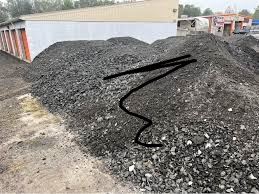Warm Mix Asphalt is in some ways superior to Hot Mix Asphalt in its impact on the surrounding environment. It is made at lower temperature, people use temperature ranging from 2000F to 2500F (93 0C to 121 0C) which consumes less energy and put out less dangerous emissions into the atmosphere during its manufacture. WMA technology is on the rise, especially for companies in and around Jacksonville urging to embrace environmentally friendly methods.
Advantages of WMA:
- Lower Emissions: Another advantage derived from the low production temperatures is that it in itself is a cleaner process in terms of formation of air borne pollutants.
- Energy Savings: In making WMA lower temperatures are used compared to that used in making HMA thus the method used saves energy.
- Workability: It should also be noted that when analysed at lower production temperatures, WMA rests easy to work with and remains as compact as HMA.
Disadvantages of WMA:
- Cost: It might even be slightly expensive than the normal HMA due to the various technological enhancements incorporated during it production.
- Availability: WMA is not necessarily available at all these places or can only be available, for instance, in some projects.

Cold Mix Asphalt
Being a reactionary material, Cold Mix Asphalt is commonly used in temporary applications and does not require the heating of the asphalt mixture. Its utilization is common in patching up of pothole, cracking, and others that are minor defects on the surface of Roadways which do not require a new layer of pavement. They are Cold Mix Asphalt, used in emergency road repair or where heating equipment cannot be used in preparation of the asphalt .
Advantages of Cold Mix Asphalt:
- Convenience: It can be applied without heating and it can be used in cases of emergency, or where there could be no heating equipment available.
- Cost-Effective: This results to cold mix asphalt being cheaper than both HMA and WMA hence is more advisable for short term applications.
- Quick Application: Since it does not need heating, it can be applied and compacted more rapidly than other categories of asphalt.
Disadvantages of Cold Mix Asphalt:
Temporary Solution: Cold mix asphalt lacks great strength and tends not to have a very long lifespan than structures such as HMA or WMA, thus not suitable for long-lasting or heavy trafficked structures.
- Limited Thickness: It is not suitable for regions that warrant the application of a thick pavement or require a rigid base.
- Lower Strength: Cold mix asphalt is slightly weaker than hot or warm asphalt mix and may not last as long.
There are three types of paving known as: Hot Mix Asphalt (HMA), Warm Mix Asphalt (WMA) and Cold Mix Asphalt; each with particular strengths which makes it ideal for various projects. Their decision will be based on the project requirements, environmental conditions, temperature, cost, as well as the life of the surface required. An understanding of these differences will serve to prevent most projects from using the wrong kind of asphalt paving; for instance, one that is appropriate for a highly utilized road pavement, or one that is only well-suited for a short-term construction fix, or one that is recommended for an environmentally sensitive project.